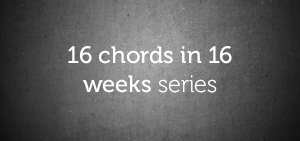
If you’re a beginner and are interested in learning scales to improvise with, you’ll love this lesson.
Improvisation simply means making things up on the spot and I know that there are so many scholarly ways it can be defined but I’d want us to go with this definition because we’re going to be super basic in this lesson.
Now that you’ve known what improvisation is, let’s quickly find out if a beginner should improvise or not before we proceed into learning the scales to start with.
“Should A Beginner Improvise Or Not?”
While some teachers may argue that beginners should not be taught improvisation because they’re not properly grounded with music theory and technique, I believe that improvisation is for every musician.
“Why Do I Think A Beginner Should Learn To Improvise?”
Musicians who are at the earliest stages of their development may not be technically proficient to play complex melodic lines or handle extremely fast tempo.
But they are musicians, right? Yes! They are musicians and their interest in improvisation should not be sacrificed on the altar of theory and technique.
Attention: I’m not playing down on the importance of theory and technique. They are important and cannot be ignored.
Improvisation is for everyone and while the beginner might sound like an amateur, he/she is still an improviser — an amateur improviser.
If you were disallowed to speak as a child until you’ve old enough to, I’m sure you won’t like it. In fact, the reason why you can speak properly today is because even while you were a child, you talked with people around you irrespective of their age.
I believe music is a language and must be approached as such. A beginner should be allowed to improvise and be encouraged just the same way we encourage little children when they speak.
Start Today With The Pentatonic Scale
The pentatonic scale provides an excellent to the beginner who is interested in improvisation unlike other scale types and classes and we’re specifically talking about the major pentatonic scale.
There are several examples of the pentatonic scale and time would fail me to mention and explain them to you in this lesson and that’s because my goal is to get you started. So, let’s keep our eyes on the goal and look forward to a subsequent lesson where we’ll learn more about improvisation.
“Why Not The Major Scale?”
You might be wondering “why the pentatonic scale and not the major scale?” Since a lot of beginners are familiar with the major scale, the major scale should have been an excellent scale option to get them started with.
Well, as you learn more about improvisation (and that’s where the theory comes in), you’ll learn about the avoid note and how it can easily clash with some of your ideas.
While intermediate and advanced players may have a knowledge of scales to use that don’t have the avoid note, the beginner should not be trying to avoid anything while learning to improvise.
A beginner is supposed to improvise and while he’s doing it, the scale tones should agree with everything he’s playing. This creates a free flow of ideas and instills a degree of confidence in the musician.
So, considering that the major scale has an avoid note, we’re opting for the pentatonic scale.
“Why The Pentatonic Major Scale?”
There was something we did in the past that’s called Casting The Devil In Music and it produced the major pentatonic scale.
Now, the C major scale:
…has the following notes: C, D, E, F, G, A, B, and C.
Keep in mind that the devil in music is simply known as the tritone and that’s the distance between the fourth and seventh tones of the major scale.
So, in the C major scale:
…the tritone is between F and B:
“Back To The C Major Scale…”
In the C major scale:
…the devil in music is the tritone (F and B):
…and when you cast out the devil in music from the C major scale, you’ll have a major scale without its fourth and seventh tones and having only five notes:
…and known as the major pentatonic scale.
This major pentatonic scale is a lot better to the beginner because of the absence of the avoid tone (which is F):
…and that’s why is an excellent place to start improvisation from for the beginner.
Attention: The term pentatonic scale literally means five tone scale and this is because the Greek word for five is penta.
Introducing: The C Major Pentatonic Scale
The C major pentatonic scale:
…constitutes of the first, second, third, fifth, and sixth tones of the major scale:
In the key of F#:
…playing the major pentatonic scale simply means playing all the black notes on the keyboard:
…so, you play the first three black notes (F#, G#, and A#):
…with your thumb, index and middle finger. Then you play the last two black notes (C# and D#):
…with you thumb and either the index or middle finger.
The same thing applies to the C major pentatonic scale:
C:
…to be played with the thumb.D:
…to be played with the index finger.E:
…to be played with the middle finger.G:
…to be played with the thumb.A:
…to be played with the index or middle finger.
That’s the C major pentatonic scale:
After playing and getting used to the major pentatonic scale, you’ll figure out that a lot of R&B and Smooth Jazz improvisations are based on the pentatonic scale.
Final Words
Improvisation requires an understanding and mastery of tonal and rhythmic principles.
While it’s important for a beginner to get started with improvisation, it’s also important for growth to be fostered through theoretical and technical development.
Beyond the pentatonic scale that offers you a safe haven while improvising, there are tons of other scales that you have to learn, master, and apply to take your improvisation skill to the next level.
For now, the goal of this lesson is to get you started.
All the best!
Chuku Onyemachi
Latest posts by Chuku Onyemachi (see all)
- The Formation Of Diminished Seventh Chords Used To Be Challenging Until I Did This
- How To Form Seventh Chords In Two Shakes Of A Dog’s Tail Using Third Intervals And The Circle Of Fifths Chart
- I Played The 13sus4 Chord And This Happened…
- How To Build Seventh Chords Like An Architect Using “Foundation And Structure” Concept
- This 4-Week Plan Will Help You Master All The Major Scales







Comments on this entry are closed.